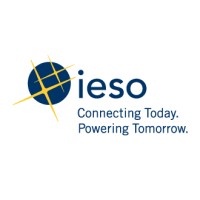
Open
Collaborate 2 Commercialize
Last Update: December 4, 2025
ON, Canada
Money for collaboration between public Academia and Industry
Grant and Funding
Wage Subsidies And Interns
At a glance
Funding available
Financing goals
Integrate new technologies
Develop strategic partnerships
Develop a new product
See more
Eligible Funding
- Maximum amount : 150,000 $
- Minimum amount : 20,000 $
- Up to 50% of project cost
Timeline
- Open Date : January 20, 2023
Eligible candidates
Eligible Industries
- Manufacturing
- Professional, scientific and technical services
Location
- Ontario
Legal structures
- For-profit business
Annual revenue
- All revenue ranges
Organisation size
- All organization sizes
Audience
- Startups
Overview
Receive between $20,000 and $150,000 to cover up to 50% of the eligible project costs to collaborate with Academia to solve an industry‐based problem and drive the commercialization of Intellectual Property (IP).
Activities funded
- Collaborative research and development projects addressing industry-based challenges.
- Commercialization of intellectual property resulting from academic-industry partnerships.
- Development of commercially viable solutions by leveraging specialized academic expertise and infrastructure.
- Projects aimed at bringing new technologies or innovative processes to market within three years after project completion.
- Initiatives that directly engage students in experiential learning roles within industry-academic collaborations.
Examples of admissible projects:
$ 60,000
Collaborating with a university to develop a new marine biofuel prototype
$ 45,000
Collaboration with the University of British Columbia for the development of a biodegradable packaging prototype
$ 75,000
Partnership with McGill University for the commercialization of a new biomedical device
$ 75,000
Development of a new agricultural drone in collaboration with the University of Guelph
$ 60,000
Partnering with the University of Waterloo to develop advanced cybersecurity tools
Eligibility
- The applicant must be a for-profit company incorporated in Ontario for at least two years and possess a valid Ontario-based CRA business number.
- The company must qualify as a small or medium-sized enterprise (SME) with a minimum of five full-time equivalent employees based in Ontario.
- The company must be using or developing technology innovation or innovative processes to enhance competitiveness in provincial, national, and/or global markets.
- Operations related to the project (production and/or R&D) must be located in Ontario.
- The company must have the intent and potential to commercialize the project results for the economic benefit of Ontario.
Who is eligible?
- For-profit small and medium-sized enterprises (SMEs) incorporated in Ontario
- Companies using or developing technology innovation or innovative processes
- Industries with Ontario-based research and/or manufacturing operations related to the project
Who is not eligible
- Companies that are not for-profit or not incorporated in Ontario for at least two years.
- Businesses that do not have a valid Ontario-based CRA business number.
- Companies with fewer than five full-time employees in Ontario.
- Industry partners not engaged in technology innovation or not intending to commercialize project results for Ontario's economic benefit.
- Organizations not in good financial and reporting standing with OCI.
Eligible expenses
- Salaries and benefits for project personnel at the post-secondary institution.
- Purchase of equipment, materials, and operating costs necessary for conducting the project (up to 20% of NSERC budget for joint NSERC-ARD projects).
- Project management expenses (up to 10% of NSERC budget for NSERC-ARD projects).
- Faculty release costs at colleges (up to $9,000 per course/semester for NSERC-ARD projects).
- Travel expenses for college personnel to conduct project activities (excluding international conference presentations).
- Overhead and administration costs, where applicable (up to 20% of NSERC budget for NSERC-ARD projects).
Eligible geographic areas
- Ontario
Selection criteria
- Significance of the challenge or opportunity in supporting the company’s business strategy and growth.
- Rationale for the proposed project in addressing the company-specific problem or opportunity.
- Clarity and appropriateness of the research and development methodology, objectives, and roles of each partner.
- Feasibility of the project plan, including milestones, budget, timeframe, project management plan, and risk assessment.
- Likelihood of economic benefit for the company in Ontario within three years of project completion, such as job creation, revenue generation, or investment attraction.
How to apply
1
Initial Connection
- The Industry Partner connects with their OCI Business Development Manager (BDM).
- If new to OCI, complete the Program Enquiry Form to get connected with a BDM.
2
Eligibility Assessment
- OCI conducts an initial vetting and due diligence assessment to ensure eligibility.
- Determine if the opportunity is suitable for the C2C program.
3
Application Access
- If eligible, receive an autogenerated link to the AccessOCI online application system.
- The application remains open for 90 days for completion.
4
Complete Application
- Complete the online application form jointly in AccessOCI.
- Both Industry and Research Partners log in to AccessOCI and create accounts if needed.
- Include only eligible expenses in the budget.
- Submit the application to the post-secondary institution’s Research Office for endorsement.
5
Research Office Endorsement
- The Research Office endorses the application in AccessOCI.
- Notify OCI Business Development Manager (BDM) that application is ready for final review.
6
External Review
- Application proceeds to an external peer review by subject-matter experts.
- Assessment is done by OCI’s Internal Review Panel for final decision.
- Receive decision notification typically within 35 days of application submission.
Additional information
- Institutional overhead is not an eligible project expense and should not be included in the project budget.
- Overhead on the OCI contribution will be remitted separately by OCI to the institution at a fixed percentage.
- Project activation occurs upon the signing of the funding agreement, with funds only released after activation.
- At one, two, and three years after project completion, a retrospective survey must be completed to report on commercial outcomes.
Apply to this program
Frequently Asked Questions about the Collaborate 2 Commercialize Program
Here are answers to the most common questions about the Collaborate 2 Commercialize. This section explains what the program is, how much funding is available, eligibility requirements, application deadlines, and other important details to help you determine if this grant is right for your business.
What is the Collaborate 2 Commercialize?
How much funding can be received?
Who is eligible for the Collaborate 2 Commercialize program?
What expenses are eligible under Collaborate 2 Commercialize?
Where is the Collaborate 2 Commercialize available?
Is the Collaborate 2 Commercialize a grant, loan, or tax credit?
Who are the financial supporters of the Collaborate 2 Commercialize?
Apply to this program
More programs like this

Tax CreditsOpen
Ontario Innovation Tax Credit (OITC)
Ontario Ministry of FinanceRefundable tax credit for R&D in Ontario

Grant and FundingClosed
ISDE — Advanced technologies for open-source intelligence due diligence
Innovation, Science and Economic Development Canada (ISED)AI solutions for research security and open-source intelligence advancement

Grant and FundingExpert AdviceOpen
Expanded Energy Management Program
Independent Electricity System Operator (IESO)Funding to strengthen facility energy management and efficiency initiatives

Grant and FundingOpen
XLerate Program
Independent Electricity System Operator (IESO)Pay-for-performance funding for large-scale Ontario energy-efficiency projects

Grant and FundingClosed
REGI — Business Scale-up and Productivity (BSP) - Northern Ontario
Government of CanadaFunds to accelerate business growth in Northern Ontario

Tax CreditsOpen
Ontario Research and Development Tax Credit (ORDTC)
Ontario Ministry of FinanceNon-refundable tax credit for R&D in Ontario

Grant and FundingOpen
Eastern Ontario Development Fund (EODF) — Business project loans
Government of OntarioLoans to grow or expand in eastern Ontario

Loans and Capital investmentsClosed
Southwestern Ontario Development Fund (SWODF) — Business project loans
Government of OntarioLoans to grow or expand in southwestern Ontario

Grant and FundingClosed
Regional Development Program — Advanced Manufacturing and Innovation Competitiveness (AMIC)
Government of OntarioFunding and business support for Ontario SMEs

Grant and FundingTax CreditsOpen
Economic Development & Growth in Employment (EDGE) Incentive Program
City of TorontoSupports tax-based incentives for new or redeveloped employment properties
Sign up to our platform to access the Collaborate 2 Commercialize information sheet for free
Get access to 4,000+ programs, practical guides, personalized alerts, and an AI assistant to support your grant applications.